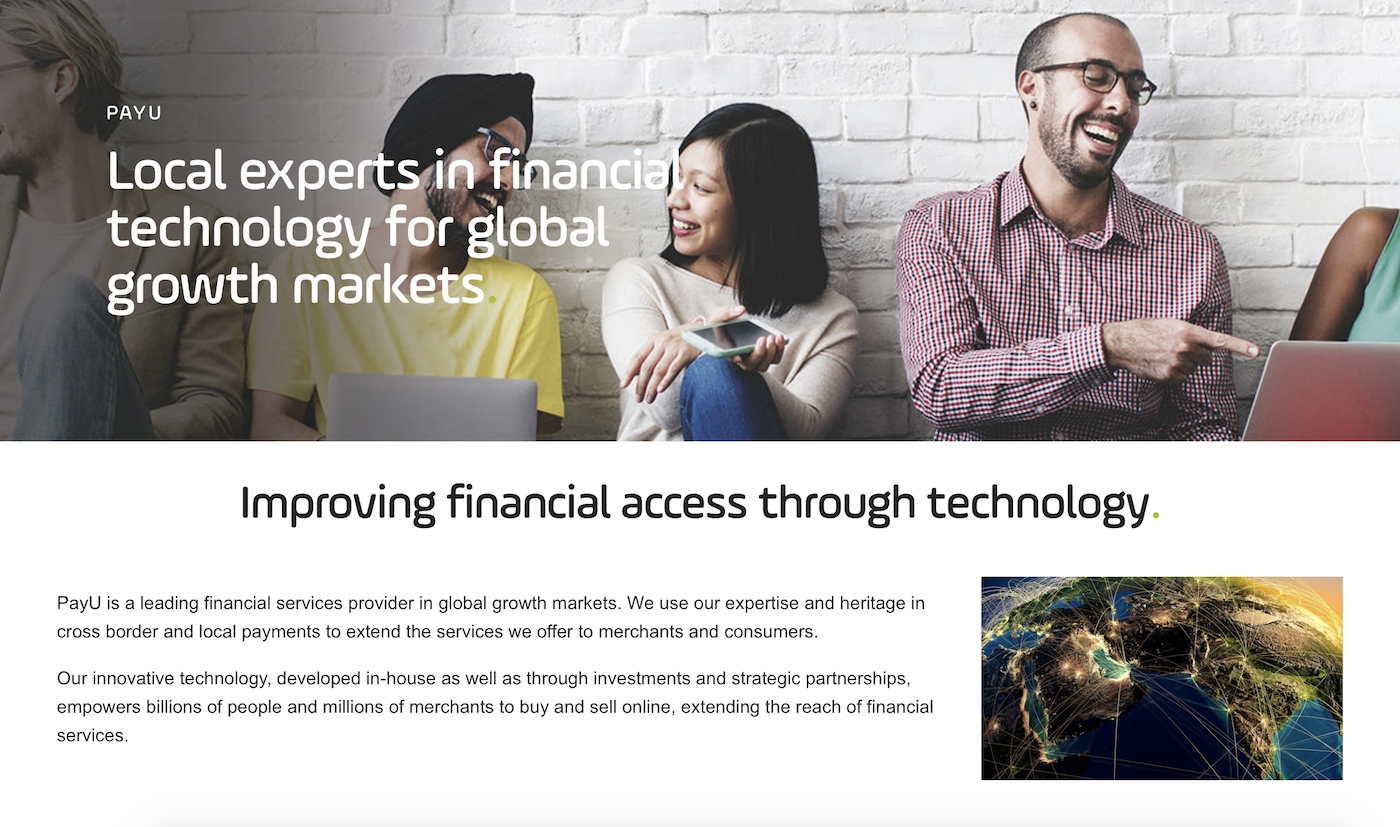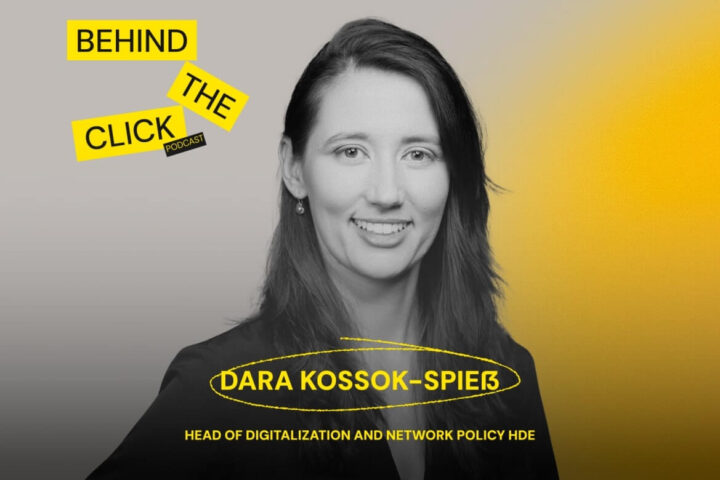PayU: Reach new markets and increase approval rates by letting your customers pay the way they want
Written by
Editorial TeamPublished on

The Ecommerce market is booming, with sales worldwide predicted to amount 4.48 trillion US dollars by 2021. As an Ecommerce business, you surely want to ride this wave too! In this interview, Sven Gruhl from PayU paints a complete landscape of online payments both in Europe and worldwide for you to consider before selling internationally or planning your future expansions. If you want even more details, you cannot miss his talk at the E-commerce Berlin Expo on February 15, 2018!
Paulina, Ecommerce Capitals: You have extensive professional experience in the online payments sector with roles, first, in PayPal and, currently, as the Director of Global Sales at PayU. How have online payments changed over the last, say, 10 years? What’s happening now?
Sven Gruhl, Director of Global Sales at PayU: Consumers purchasing behaviours have evolved remarkably in recent decades and the global rise in smartphone adoption has only served to exponentially speed up this evolution. However, if the last five years have taught us anything, it is that increasing levels of payments innovation are now occurring in all corners of the globe.
While established markets like the US get tangled in legacy infrastructure, for example moving from magstripe to Chip and Sign payment cards, a new wave of payments innovation is taking place – with emerging, high growth markets becoming the ones to watch. Propelled by increasing consumer demand, favourable regulation and unburdened by legacy infrastructure, countries in high growth markets are starting to come to the fore when it comes to large scale online payments innovation and adoption.
Ultimately, today’s consumers naturally seek frictionless payments that cater to their expectations; the better the experience on offer, the quicker the uptake. They know frictionless payments are technically possible and they fully expect the market to cater to their demands regardless of whether they are shopping with a merchant based in the same town as them or 9,000 miles away.
In 2017, DPDgroup released its Barometer E-shopper report which describes the most popular online payment methods in Europe. Their data have revealed stark differences in the preferred payment methods across different European markets. How do you see these differences? What is their reason?
While credit and debit cards are the most frequently used payment methods in most of Europe, no two markets are ever the same. Alternative payment methods – which refer to payments made using something other than a credit card like cash, coupons, bank transfers, prepaid cards etc. – still represent as many as two-thirds of all payments in high growth markets.
For example, in Poland the most popular payment method, used by two thirds of Polish e-consumers, are real-time bank transfers called ‘pay-by- links’ which are specific to that country. In Turkey, more than 80% of credit card payments use instalments, allowing consumers to make larger purchases without increasing the burden on household budgets. And in Russia, the local card scheme Mir is very popular.
According to this report, PayU is particularly popular in Poland and Turkey. What has made you so successful in these two markets?
At PayU we are trying to do our part to make online payments easier for local as well as global merchants and consumers alike. In 2017, we launched the PayU Hub platform. PayU Hub aims to use technology to solve online cross-border commerce challenges by using a single API integration to access to 2.3 billion potential new customers in the major high growth markets across Asia, Central and Eastern Europe, Middle-East, India, Africa and Latin America.
PayU Hub’s hyper-local direct connections to acquirers and alternative payment methods allows merchants to see increased card approval rates and reach entire markets through alternative payment methods. This also ensures that local consumers in high growth markets like Poland and Turkey can pay for their purchases using their preferred payment method.
Specifically in Poland, our two local offices and over 15 years of experience coupled with the highest conversion rates in the market and direct co-operation with banks make us one of the most recognisable and trusted brands in the Polish market. In turn, we’ve been in the Turkish market for over six years now, and our core strength is the acceptance of international and local cards.
PayU has strong Polish roots and the Polish market itself has several highly successful solutions such as “pay by link” or BLIK. To what extent are these solutions adopted in other countries?
In Poland, PBLs are an innovative solution from PayU which streamline the bank transfer process. Over 60% of online transactions are paid using this method. PayU offers PBLs in other European markets including the Czech Republic and Hungary; they are not quite as popular as they are in Poland. However, we see in most PayU markets, bank transfers are still one of the preferred payment methods for local consumers and important for merchants to offer. E-wallets such as BLIK also vary in popularity, but we continue to see new alternative payment methods allowing consumers to engage in online shopping in all of our markets. As a leading online payment service provider in high-growth markets, PayU prides itself on offering more than 300 payment methods that meet the unique needs of the merchants and consumers in their local markets.

Apart from this, PayU is also available in Russia, India, Brazil and a range of other markets, but it’s not available in Germany. Why is that?
PayU uses its payments heritage and expertise to deliver financial services in emerging and high-growth markets. The markets in which PayU operates represent a potential consumer base of nearly 2.3 billion people and a huge growth potential for merchants in established markets like Germany looking to trade internationally.
Regulation is a big issue in 2018, in particular PSD2 which is set to come into effect later this year, what are your thoughts on the regulatory horizon?
Regulating the financial markets is a global trend and will continue to change the payments landscape. And while all eyes will be on PSD2 going live in Europe in 2018, it can be said that this is ‘child’s play’ in comparison to some of the regulatory initiatives being rolled out in emerging markets where growth and scale are key. For example, Argentina will lead the way with its upcoming Data Protection changes; the first Latin American country to be recognised as an adequate country by the European Commission.
With such large regulatory changes taking place, it’s likely that we will see companies coming together to develop strong partnerships that help shield them against changes that they know could impact their businesses. And for companies like PayU, there will be an increased responsibility to ensure that international merchants are compliant in the emerging markets where we help them operate.
What will the future bring? Will these differences stay as they are or will this all unify? In other words, will a specific online payment method or standard win over the competition?
The trade of goods across borders has been around since the days of barter and is often cited as being at the forefront of economic globalisation. Indeed, following the advent and uptake of eCommerce and mCommerce, cross-border now represents one of the biggest business opportunities available to merchants around the globe. Recent estimates show the cross- border market growing from $401 billion in 2016 to $994 billion in 2020. And nearly two-thirds of cross-border business is expected to come from high growth markets such as Asia and Latin America.
However, as is often the case, opportunities come hand in hand with challenges, and many determined merchants are being held back by cumbersome cross-border payment infrastructure and processes which are hindering their ability to meet and transact with potential consumers.
Rather than adopt a traditional cross-border model, using an international acquirer, PayU has redefined the way cross-border payments can be undertaken through our PayU Hub. Not only does it allow merchants to process payments locally – reaching the entire markets through alternative payment methods but it also improves customer experience. For example, when a local consumer in a high-growth market like Colombia pays for their purchase with a credit card from a merchant using an international acquirer, their payment is automatically defaulted in instalments, which can be typical in the region. Local processing allows consumers to select the number of instalments and there’s no default, thus eliminating the issue.
With the growth of cross-border trade predicted to more than double in under three years, the opportunity is undeniable but the reality is that no two markets will ever be the same. That said, as companies like PayU enable more consumers in high growth markets to keep using their preferred payments methods, some of the bigger cross-border challenges will be overcome and both consumers and merchants will increasingly be empowered to trade freely regardless of location.
Last year you announced your EUR 110 million investment in Kreditech, the largest ever equity investment in a German fintech company, what made this a compelling investment for PayU?
At PayU we believe in the enormous potential of technology to unlock credit and financial services for underserved populations and our investment in Kreditech fits perfectly with this vision. Over the last 18 months PayU has become a leading corporate venture capital investor in FinTech, investing more than EUR 245 million around the world.
As part of our deal with Kreditech we agreed a global partnership that will enable retailers in high growth, emerging markets to offer their customers new ways of financing online purchases – conveniently, transparently, and at competitive interest rates. The partnership combines Kreditech’s unique AI and machine-learning credit underwriting and loan management technology with PayU’s 300,000-strong network of merchants.

Photo Credits to Tech Crunch
Apart from the obvious bitcoin craze, what is the next big thing in online payments in 2018 – and why?
A significant issue faced by many cross-border merchants is a reliance on traditional methods of credit authorisations. Understandably, many merchants from mature markets are hesitant to lower their risk threshold by relying on non-traditional payment verification models. Yet, this means that it can be incredibly difficult for businesses and customers to connect with each other.
Fortunately, a consequence of the rise in smartphones is that it brings with it a corresponding rise in data about customers spending and earning habits. As the amount of data increases, new techniques are being used to build credit intelligence and more accurately understand an individual’s credit rating. For example, AI and machine learning are being incorporated into credit models, enabling underwriting which uses thousands of variables all changing in real time.
At PayU we are developing and supporting these new techniques and their potential to unlock credit and financial services for underserved populations. Our record €110 million investment in Kreditech means that we have a joint partnership to create credit ratings and provide finance to people who may not otherwise have traditional credit histories. As such, I believe credit at the point-of-sale is the next big thing in online payments in 2018.
You are one of the speakers at E-commerce Berlin Expo taking place on February 15, 2018. What are you going to talk about? Why did you choose this specific topic?
The topic of my talk is ‘The Opportunity and How to Optimize Payments in Emerging Markets’. The session will cover why merchants should be thinking about emerging markets to grow their business, what are some of the opportunities and challenges and how local processing in these markets can allow merchants to capitalize on the opportunity. I chose this topic because I see so much potential and growth in markets in LATAM, CEE, India and Africa, but merchants often are hesitant because of some of the complexities of doing business in these markets.
What do you want your audience to learn from your talk?
My objective of the session is to get merchants excited about the opportunity in emerging markets and to educate them on how to be successful in these markets.

Sven Gruhl has worked in the e-commerce for 17 years – the last 10 in payments. In 2017, he joined PayU as Director Global Sales. Before PayU, he held several roles at PayPal, incl. heading sales teams in the Enterprise and SMB segment during his almost 10 years tenure. Before that, he worked at ebay for 5 years and at the start-up ALTUS Media GmbH, a partner of the “Deutsche Fußball-Liga” (DFL).


